July 25:
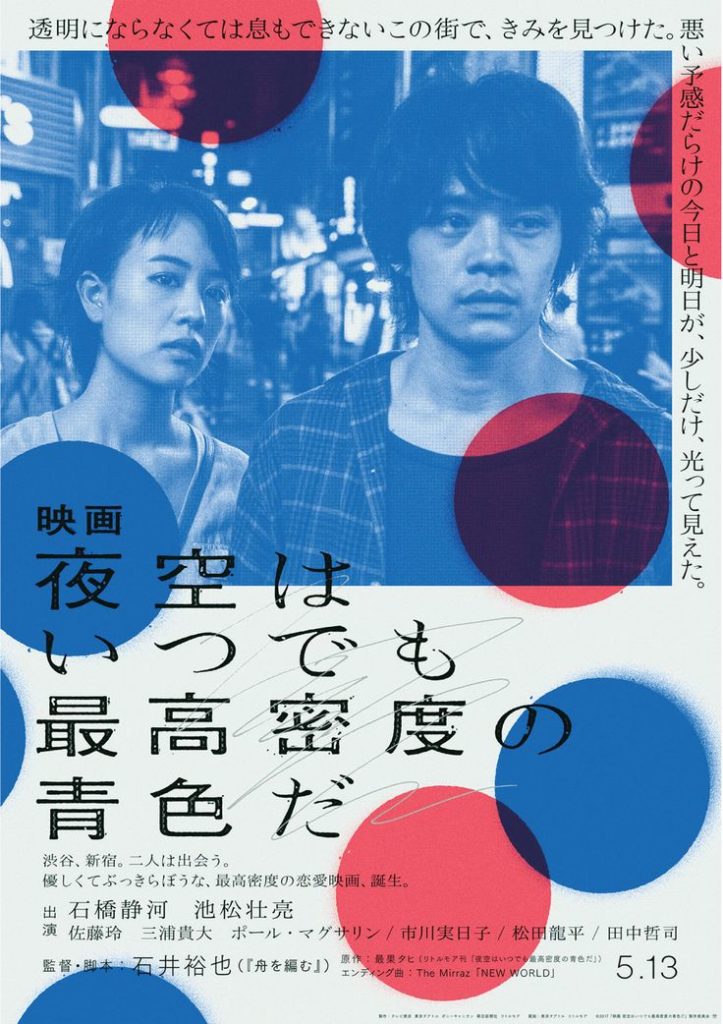
THE TOKYO NIGHT SKY IS ALWAYS THE DENSEST SHADE OF BLUE (Japan, dir. Yûya Ishii)
Shinji (Sosuke Ikematsu), a half-blind construction worker, and Mika (Shizuka Ishibashi), a nurse who moonlights at a “girlie bar,” keep crossing paths in Tokyo. Shinji is socially maladjusted with no filter between his brain and his mouth; Mika is preoccupied with death. These two miserable twentysomethings sulk around Tokyo for the better part of two hours while the people around them make bad decisions and/or die before a glimmer of hope appears in the film’s final shots. This fiction narrative and the documentary TOKYO IDOLS (also playing Fantasia this year) paint an exceedingly bleak picture of life in urban Japan. The lead performances are good, but the film as a whole is oppressively dour. Stretches of it would work nicely as a nighttime travelogue through Tokyo, but during those moments it’s tough not to think this would be a much more enjoyable experience if that’s all the movie was.
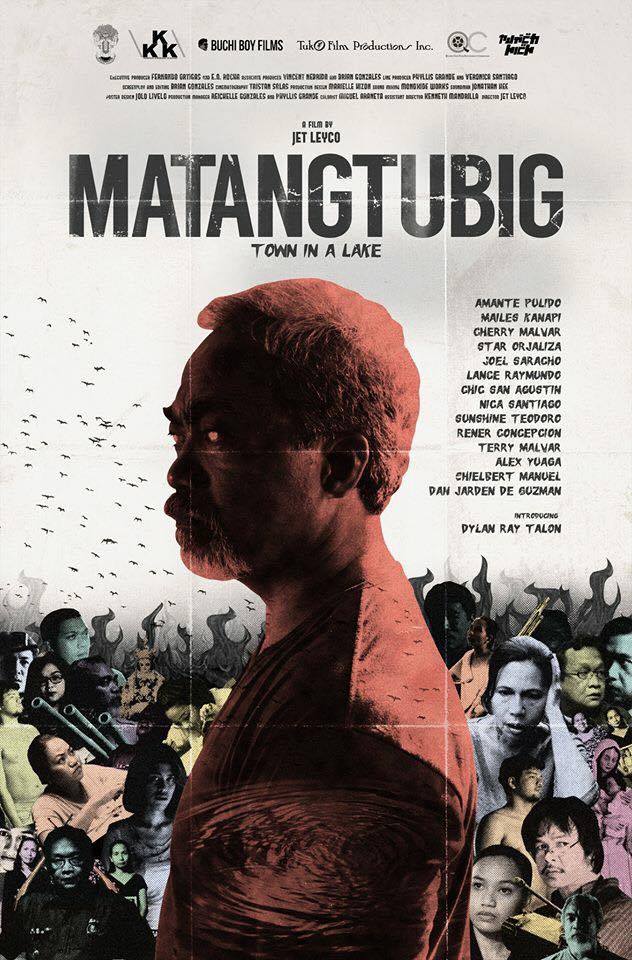
TOWN IN A LAKE (Philippines, dir. Jet Leyco)
Two high school girls are abducted and taken into the jungle surrounding the small town of Matangtubig, and the next day the body of one of them is discovered but the other is still missing. The people of the quiet town are horrified and angry, and the shock waves ripple well beyond their borders. While the police and townsfolk try desperately to find the missing girl, a fisherman who saw the abduction is wracked with guilt but certain no one would believe him if he made an official accusation. As tensions rise and a massive storm looms, can the perpetrators be found before they kill again or will Matangtubig be doomed to live in fear? TOWN IN A LAKE calls to mind the quiet “magical realism” of Apitchatpong Weerasethakul, both in its dense, green locations and in its patient unfolding of detail in the lives of its characters. This is less a murder mystery/thriller than it is a slice of life in this small town at a very difficult time. The final act takes the story into highly unexpected territory, and no doubt TOWN IN A LAKE would benefit greatly from repeat viewings.

FRIENDLY BEAST (Brazil, dir. Gabriela Amaral)
Fifteen minutes before closing time at a high-end restaurant in a low-rent part of town, and everyone is ready to leave; owner Inácio (Murilo Benício) is already counting out the drawer. But there’s one customer left finishing his meal when a rich couple rushes in, lingering over the wine list and ridiculing harried waitress Sara (Luciana Paes). Head chef Djair (Irandhir Santos) sends the rest of the kitchen staff home, which infuriates Inácio, already about to snap from the pressure of an upcoming restaurant review and his wife’s nagging. When two young men break in and attempt to rob everyone, Inácio tips over the edge. Rather than just call the police he wants to teach these young criminals a lesson, and if anyone else in the restaurant won’t go along with it, maybe they need one as well. Inácio enlists the help of Sara to tie everyone up while he figures out what to do next, and the situation rapidly deteriorates as they become drunk with the possibilities before them. FRIENDLY BEAST is the debut feature from writer/director Gabriela Amaral, but it feels much more assured than many first features. What starts off as something like a “home invasion” thriller turns into something much more unsettling as the power dynamic shifts between the characters. The entire film takes place in the confines of the restaurant, lending it a claustrophobic intensity stoked by a pair of great lead performances by Luciana Paes as Sara and Murilo Benício as Inácio. Gruesome, tense, and bleakly humorous, FRIENDLY BEAST is worth a look for its defiant unpredictability alone.
July 26:
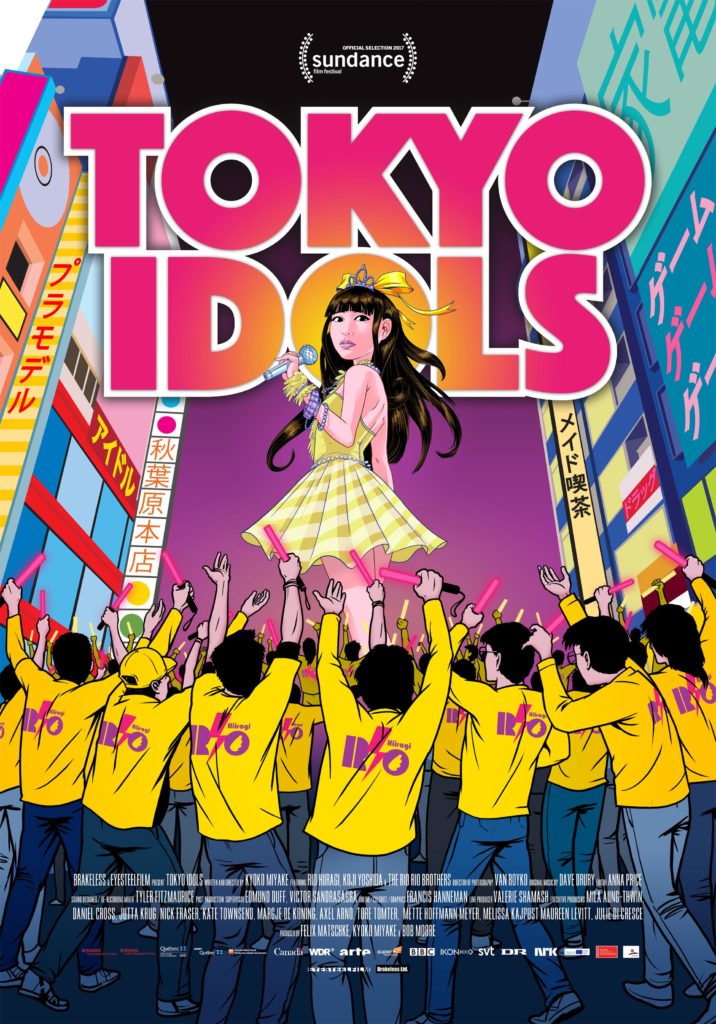
TOKYO IDOLS (UK, dir. Kyoko Miyake)
Pop music is big business in the States, but in Japan it’s taken on a major role in the culture at large. TOKYO IDOLS takes a look at the phenomenon of “idols,” young women who cultivate followings of fans online—mostly adult men—and try to work their way up from tiny local venues to the national stage. The focus of the film is largely on 19-year-old Rio Hiiragi, a popular idol whose star is on the rise, and her #1 fan Koji, a 43-year-old electronics reseller who spends every spare second and dollar on her fandom. Director Kyoko Miyake follows Rio as she performs live cam shows for her fans and does meet and greets after performances where fans get a ticket to shake her hand with purchase of a cd. Between discussions with Rio, Koji, and a few other idols and their fans, Miyake gives the stage to journalists, historians, and cultural commentators who offer bleak observations on what impact idols have had on Japanese culture at large. The most uncomfortable segments of the film focus on extreme ends of the idol culture spectrum. On one side are the annual elections for which members of AKB48–a sprawling idol conglomerate made up of hundreds of teenage girls–will be featured in the main group’s lineup draws hundreds of thousands of votes and dominates the Japanese press. On the other is a small independent group made up of young teen and pre-teen girls and the adult male fans who follow them. TOKYO IDOLS is a fascinating and occasionally disturbing look at a cultural phenomenon with no real analog in the West.
July 27:
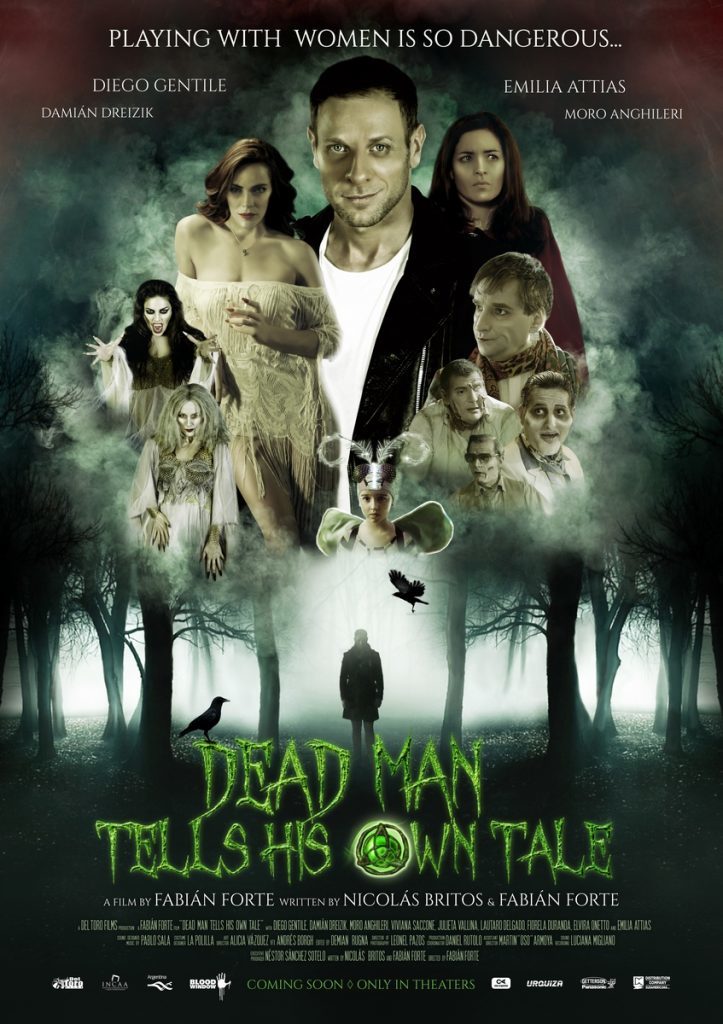
DEAD MAN TELLS HIS OWN TALE (Argentina, dir. Fabián Forte)
Womanizing commercial director Angel (Diego Gentile) has too many plates spinning at once: a constant stream of gorgeous young women to bed, a wife and daughter at home, and clients demanding huge changes at the last second. On top of all this, he has an encounter with some strange women that complicates the situation even further: now he’s undead, prone to blackouts from which he wakes up covered in dirt and exhausted. Who are these mysterious women, and what are they making him do? More importantly, can he keep working while this is happening? DEAD MAN TELLS HIS OWN TALE is an exceedingly wacky horror/comedy that seems interested in commenting on the kind of harmful macho mentality of its lead character, but it also puts him into the position as a protagonist set against a bunch of scheming witches. Obviously there’s some cognitive dissonance there that makes it difficult to know where the film stands on these issues. Angel is transparently a selfish jackass, but he and his fellow undead bros don’t seem to have learned much of anything as a result of their actions. The film builds to a coda that hints at a much more interesting direction the movie probably should have taken earlier, but it’s far too little and way too late to make much difference. It’s too goofy to take seriously, but with just enough drama that it’s not quite as cartoonish as it should have been.
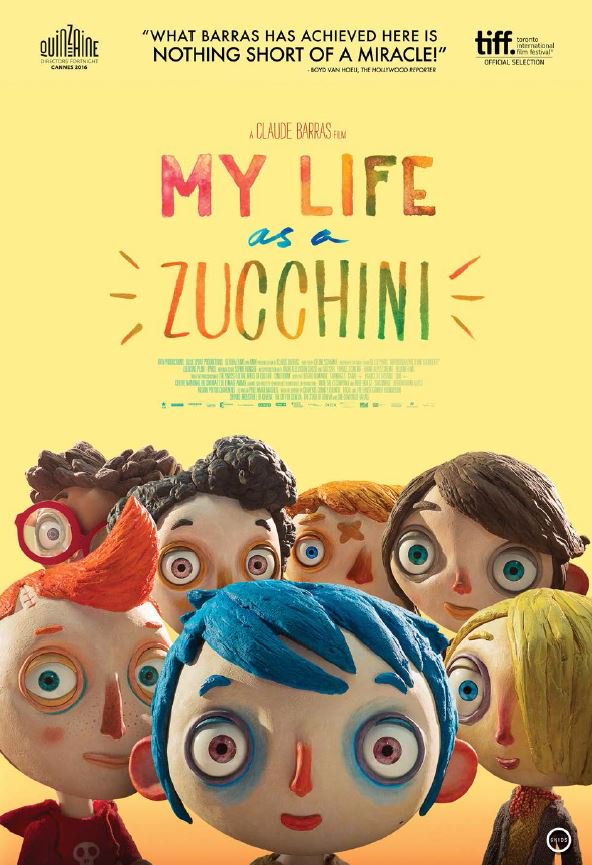
MY LIFE AS A ZUCCHINI (Switzerland, dir. Claude Barras)
Icare is a little boy who lives with his alcoholic mother who spends all day drinking beer, yelling at the television, and calling the boy “Courgette” (French for “zucchini”). After a tragic accident, Courgette is sent to an orphanage run by kindly Madame Papineau where he meets a group of other children and joins their makeshift family. When Camille comes to live with them after her aunt is tired of taking care of her, Courgette and the new girl strike up an instant friendship. In addition, he is regularly visited by Raymond, the police officer who handled his case. Courgette learns to love his new makeshift family, even though it comes with its own peculiar problems. Adapted from a French novel by Gilles Paris, MY LIFE AS A ZUCCHINI is a touching stop-motion animated feature that doesn’t shy away from the darker and more difficult aspects of its young characters’ lives. The characters and their world have a charming, handmade look and the design of each “actor” is perfect for conveying a wide array of emotions both obvious and subtle. This is easily one of the best and most affecting animated films of the year.
- [CINEPOCALYPSE 2017] FIVE FILMS YOU CAN’T MISS AT CINEPOCALYPSE! - October 31, 2017
- Hop into Jason’s Ride for a Look at the Wild World of Vansploitation! - August 11, 2014
Tags: Argentina, Brazil, Claude Barras, Diego Gentile, Fabián Forte, Fantasia Film Festival, Gilles Paris, japan, Kyoko Miyake, Montreal, Switzerland, The Philippines, The UK





No Comments